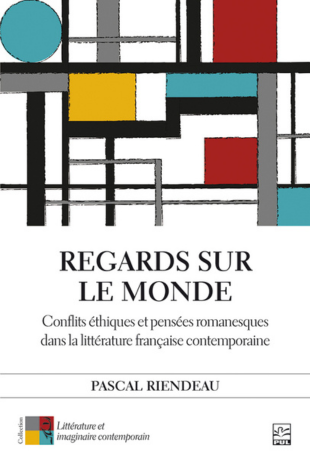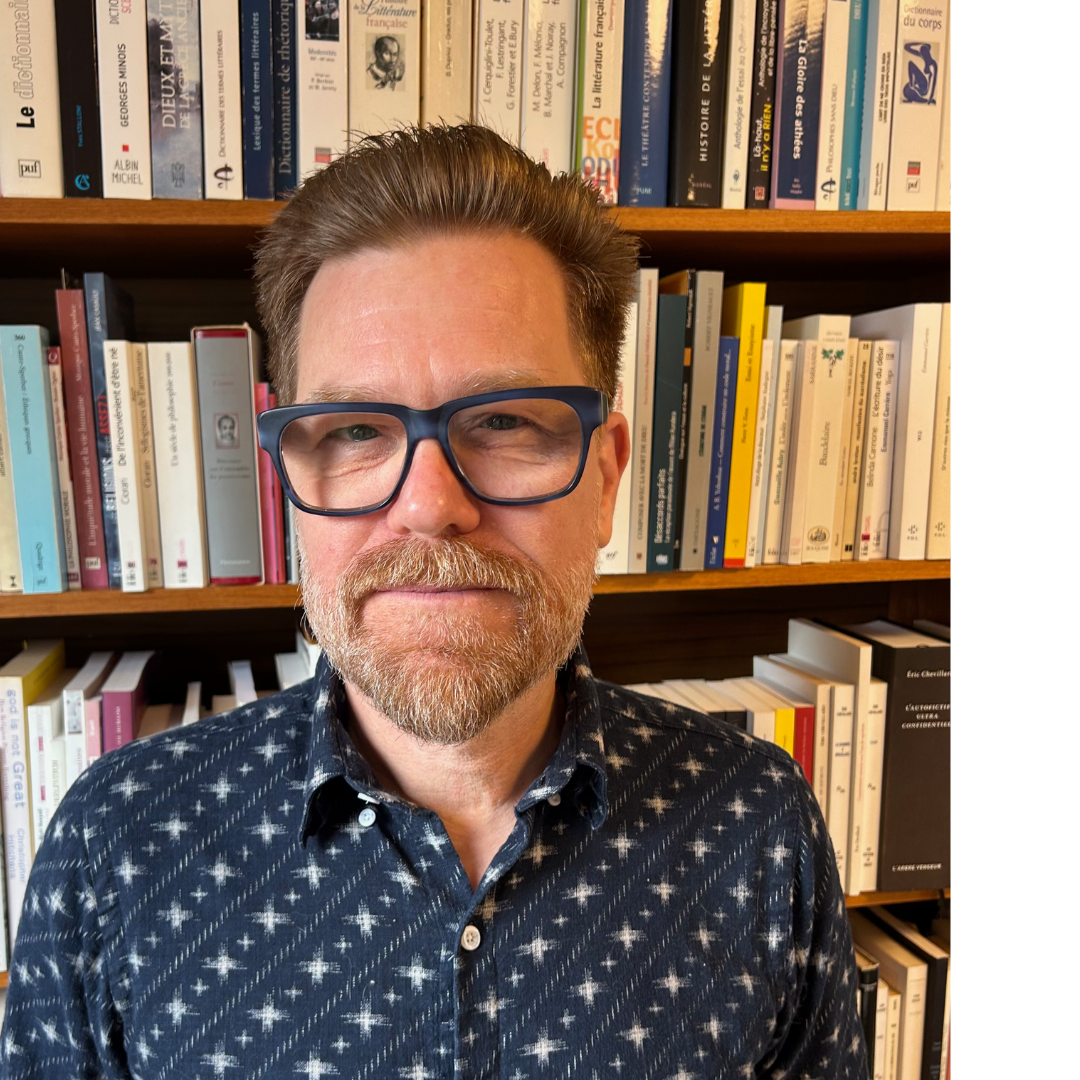About the author | About the book | Author's notes
"I'm a literature professor who sincerely believes in the importance of literature for pleasure, learning, and above all, understanding the world. I think it's highly relevant to take an interest in all art forms (literature, film, visual arts, etc.) in order to try to understand the world around us."
About the author
Pascal Riendeau graduated from UQAM (B.A. and M.A.), then from Université de Montréal (Ph.D.). After three years as a postdoctoral researcher, he began his teaching career at the University of Toronto Scarborough, where he teaches French and Quebec literature. His initial interest was in theater. He published a monograph on playwright Normand Chaurette entitled La cohérence fautive; he then continued to work on dramatic texts and co-edited dossiers for magazines in this field (Voix et Images, L'Annuaire théâtral). His subsequent research led him to study the essay. He published a monograph on the essay, Méditations et visions de l'essai (Prix de l'APFUCC, finalist for the Governor General's Award). He was assistant editor (essay section) of volume VIII of the Dictionnaire des œuvres littéraires du Québec. 1986-1990. While continuing to work on essays and occasionally on theater, he devoted a good part of his research to the novel. He co-edited a collective (Le roman français de l'extrême contemporain. Écritures, engagements, énonciations); he edited a journal dossier on the French novelist Éric Chevillard (Roman 20/50) and wrote a column on the novel for Voix et Images (2009-2015). His latest monograph: Regards sur le monde. Conflits éthique et pensées romanesques dans la littérature française contemporaine was published by Presses de l'Université Laval in Quebec City and Éditions Hermann in Paris.

About the book
What role does ethics play in contemporary literature? This is the initial question of this book, which is based on two structuring principles: conflict and thought. It looks at both the novel and fragments or other gnomic forms, ideal for the literary expression of ethical thought. Access to the imaginary world that is literature acquires greater relevance from the ethical questions that transform the material and manner of the novel. The ethics of the novel are less a matter of judgment than of evaluation and exploration. Whether through the thinking novel or novelistic topoi in fiction (Milan Kundera), an aesthetics of the unusual or a philosophy of observation (Michel Houellebecq), novelistic variations and generic hybridity (Camille Laurens), we come to better grasp the interaction between the novel's thought and the moralist's prose. The study of gnomic forms also plays a key role: the great questions about the place of the self in the world are treated seriously, ironically or derisively (Éric Chevillard), and work on fragmentary form enables us to develop an ethic of reading (Pascal Quignard). Despite the significant aesthetic differences in their work, the five authors have in common that they expose the complexity of ethical discourse and its relevance in literature.
This book came together quite slowly, taking shape over the years as I worked on other projects in parallel. It was during the pandemic that I decided to devote more time to this project, and I completed the manuscript in February 2022. Initially, it was motivated by two observations: an increase in the use of ethics in public discourse; and a greater openness to ethical issues in literary studies and text analysis. The more I read on the subject, the more I studied texts in this sense, the more my interest grew. I wanted to better understand what literature - a source of emotions and reflections - provides us with, but above all how it is inhabited by ethical questions and situations, which it seeks to transform.
I won't hide the fact that my book is aimed primarily at specialists, but I obviously hope it will have a wider readership. Ethical issues are often central to our lives, even if we don't always realize it. Literature also plays a central role, although less so than before, but its relevance has certainly not disappeared. I'd like it to be remembered that the texts by Milan Kundera, Michel Houellebecq, Camille Laurens, Éric Chevillard and Pascal Quignard that I've studied in my book have in common that they are permeated by philosophical content or inspired by forms conducive to the exploration of ethical thought. Above all, they show the ways in which literature gives rise, among other things, to original interpretations of (often well-known) philosophical texts, reshapes discourse and makes it one of the main elements of the work's form, content or imagination. The way they look at the world helps us to see and understand it differently.
It's an extraordinary recognition. For me, it means that the work I do and the way I do it appeals to those who work in my field. Academic books don't always get much visibility in the media or the public arena in general. This Canada Prize 2024 will help to make my book a little well known, and I sincerely hope it will encourage people to discover other books by teachers of literature or the humanities in general. Many of them are fascinating and necessary.

